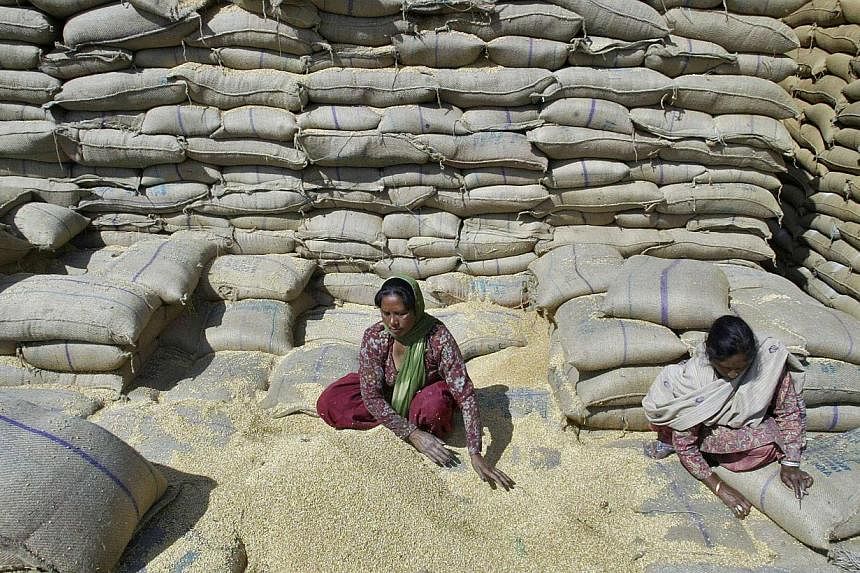NEW DELHI (AFP) - Washington and New Delhi said Thursday they have resolved a row over Indian food subsidies that blocked a key WTO trade agreement earlier this year.
India had refused to endorse the landmark Trade Facilitation Agreement (TFA) in July unless its food stockpiles were exempted from possible punitive measures.
"The United States and India reached agreement today on a set of measures intended to break the impasse in the work of the World Trade Organization (WTO) to implement the agreements reached last December," said a US government statement.
The two countries agreed that India's food security programmes would not be challenged under WTO rules "until a permanent solution regarding this issue has been agreed and adopted," it said.
India's Commerce Minister Nirmala Sitharaman tweeted that India and the US had "successfully resolved their impasse over food security issues in #WTO".
"WTO General Council will receive India's proposal and US will support us," she said.
India's new Prime Minister Narendra Modi discussed the issue with US President Barack Obama when he visited Washington in September, raising hopes of a breakthrough.
India's decision in July to hold up the landmark deal to reduce trade barriers surprised fellow WTO members, all of whom had agreed at a December 2013 meeting in Bali to implement the pact.
India and its developing-world supporters say food stockpiling is essential to ensure poor farmers and consumers survive in the cut-throat world of business.
But stockpiling and subsidies for the poor are considered trade-distorting under existing WTO rules.
Western countries, led by the United States, have raised concerns that such stocks could leak onto global markets, skewing trade.
At the time of the Bali accord, WTO members agreed on a four-year "peace clause" to protect India from being punished over subsidies and stockpiles until a "permanent" solution" was reached.
The agreement was due to take effect in mid-2015.
But after the Bali pact, Indian officials complained there were nearly two dozen meetings on the trade facilitation pact and just a handful on subsidies.

